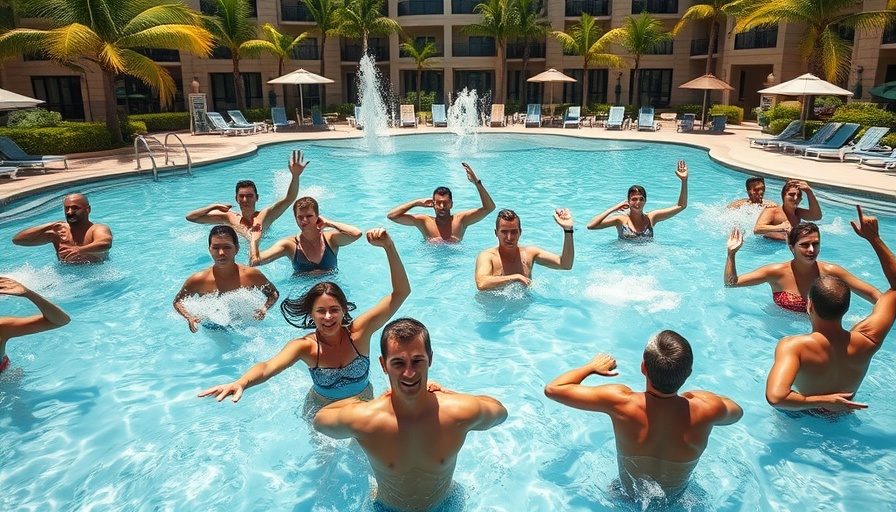
Boosting Brain Health Through Small Changes
Most of us have heard that staying physically active is essential for our bodies, but recent research emphasizes just how crucial it is for our brains as well, especially as we age. A study conducted by the University of South Australia, in collaboration with the AdventHealth Research Institute, illustrates that even brief bouts of moderate-to-vigorous exercise can significantly enhance cognitive functions in older adults.
The Power of Movement: A New Perspective on Aging
As we get older, the connection between our physical and mental health becomes increasingly evident. The findings from the study, published in the journal Age and Ageing, show a strong correlation between moderate-to-vigorous physical activity and cognitive performance. Participants aged 65 to 80 who engaged in just five minutes of brisk walking or similar activity saw notable improvements in areas like processing speed, working memory, and executive function—the very skills we need for daily tasks.
The Role of Every Minute: From Sedentary to Active
One of the most striking aspects of this research is its focus on individuals who transitioned from no physical activity to even minimal engagement. The data showed a clear pattern: greater physical activity led to better cognitive outcomes. Dr. Maddison Mellow, a researcher involved in the study, pointed out that even small adjustments to our daily routine—like standing up and stretching during a work break or taking a brief walk—can yield significant enhancements in brain health.
Understanding the Connection: Sleep, Activity, and Brain Function
The study also highlighted an intriguing two-way relationship between exercise and cognitive health: exercising improves brain health, and stronger cognitive functioning encourages more activity. Essentially, physical activity can lead to better sleep, which in turn, boosts energy levels, making it easier to stay active. This is a cycle that reinforces itself, emphasizing the importance of a balanced lifestyle.
Future Predictions: The Trend of Active Aging
As body and brain health become more intertwined in our consciousness, we can predict a future where active aging is the norm. This shift could inspire community programs focused on integrating physical activity into daily life for older adults. Programs that encourage group activities, like walking clubs or community aerobics, could foster social connections while promoting health.
Practical Insights: Easy Steps to Improve Your Brain Health
So, what practical steps can you take to incorporate more movement into your daily life? Here are a few tips:
- Set Small Goals: Start by aiming for just five minutes of activity each day. Gradually increase your time as it becomes a part of your routine.
- Find Activities You Enjoy: Whether it’s dancing, swimming, or gardening, the best exercise is one that feels less like work and more like fun.
- Buddy Up: Exercising with friends can enhance both your motivation and enjoyment.
Emotional and Human Connections: The Joy of Movement
Building physical activity into your day is not just about reaping health benefits; it’s also about enhancing your quality of life. Finding joy in moving can lead to a happier, fulfilled life, as well as connecting you with others in your community. This human element is vital, as life is richer when shared.
Your Next Steps Towards a Healthier Lifestyle
In light of these findings, consider this your call to action: Make a small change in your routine today. Whether you take a five-minute walk after lunch or try out a water aerobics class at your local gym, the goal is to engage your body and, consequently, your mind.
As research continues to highlight the importance of physical activity across all stages of life, knowing that you have the power to affect your brain health can be incredibly empowering. Let’s embrace movement as a crucial component of our everyday lives.
 Add Row
Add Row  Add
Add 




 Add Row
Add Row  Add
Add 

Write A Comment